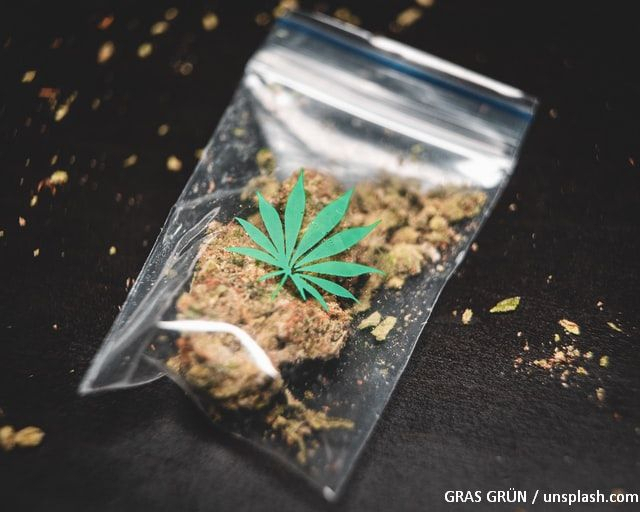Drug Consumption in Romania
The issue of drug use among young people is being treated, for the first time, as a major risk

Roxana Vasile, 17.10.2023, 18:22
The President of Romania, Klaus Iohannis, convened the Supreme National Defense Council on October 12. The issue of drug use among young people and students was also included on the agenda, and was treated, for the first time, as a major risk to individual and national security. What did the SNDC decide? The establishment of an inter-institutional working group – made up of undersecretaries of state, representatives of the domestic intelligence service, prosecutors, and specialists – to prevent and combat the risks generated by the trafficking and consumption of prohibited substances by developing an action plan with objectives, measures, and responsibilities. Only about a month before, at the opening of the new school year, President Iohannis stated:
It is a problem that concerns our society more and more, and I am glad that there is an increased interest in trying to find solutions to combat this scourge. At the same time, I want to emphasize the importance of preventive and responsible behaviors. It is crucial that young generations understand from an early age the dangers and dramatic consequences of drug, alcohol, and tobacco use.
If, at the age of only 19, Vlad Pascu would have understood on time that drugs can destroy his life, maybe the tragedy that he caused in the summer, at the seaside, would not have happened! Two students were killed and three injured by the car he was driving under the influence of several prohibited substances, the event generating very strong emotions among Romanians. And this is only a drop from the sea of recent information regarding the extent of drug use in Romania. Therefore, there is talk of drafting a law to regulate the drug testing of students in schools. The modification of the Highway Code or the development of a register of persons who commit crimes in the field of drug trafficking are also being considered. In addition to increasing prison sentences in the case of incitement to consumption, the Ministry of the Interior proposes confiscation of cars in which drugs are discovered, or which are used in the trafficking of prohibited substances. The maximum number of positions of anti-drug prosecutors with the organized crime department (DIICOT) was supplemented.
Last but not least, a draft law submitted to the Chamber of Deputies proposes that the punishments for drug trafficking be only by compulsory prison sentences. Why? Minister of Justice Alina Gorghiu explains:
Until now, the legislation provided for punishment of either by a fine, or compulsory imprisonment, or with suspension. But, without looking away, or hiding the garbage under the rug, we must understand the following: that this change is absolutely necessary, taking into account the increase in the number of cases to be resolved that have as their object crimes in the sphere of illicit drug trafficking in the year 2023. To give you an example, this year, until the end of September, there were 22 thousand drug cases, compared to 18,000 in the same period last year. It is difficult to identify how many target traffickers and how many target consumption, because it is a complex topic. But I think it is very important to understand drug trafficking conditions and consumption. The more drug trafficking you have, the more consumption you’ll have. Therefore, to bring consumption down to a low number, you will need to find levers to decrease drug trafficking, whether we are talking about low risk or high risk drugs. What does the legislative proposal say? That the rigors of this law must be borne by the traffickers, in the sense that we will no longer have the suspension of the execution of the sentence for high-risk drug traffickers. They will be in prison, if a conviction is reached for drug trafficking.
Vlad Zaha, an expert in criminology, believes that the effort of state representatives is focused more on detecting and punishing millions of consumers. Therefore, are the proposals to strengthen the legislative framework intended to strike at the heart of the problem? Vlad Zaha’s answer is ʹnoʹ.
I think that Romania does not necessarily need more prosecutors or tougher laws, because we have among the toughest laws in the European Union. Instead, we have a very big problem of the effectiveness of the resources we already have. 80% of the work of a policeman or prosecutor is somehow focused on consumption, and not on trafficking. That’s the problem! It’s good that things move when a little public pressure is applied, we also see these last few weeks that all kinds of cannabis greenhouses are being discovered, more significant quantities are being discovered, but this is strictly, I think, due to public pressure, because in the last two years there has not been that much public pressure, and nothing has been discovered, to understand exactly what we mean. It is estimated that the size of the drug market in Romania is over 250 million euros per year.
The drug problem will not disappear in two months, not in five, not in one year, not in ten – the authorities are aware. As the fight is long-lasting and fierce, it is very important that the issue of prohibited substances be kept as high as possible on the public agenda. All the more so since, according to official statistics, 1 in 10 Romanians consumed drugs at least once. In the case of young people, the rate is almost 2 out of 10. And the age of a first-time consumer has come to be between 10 and 14 years.






























